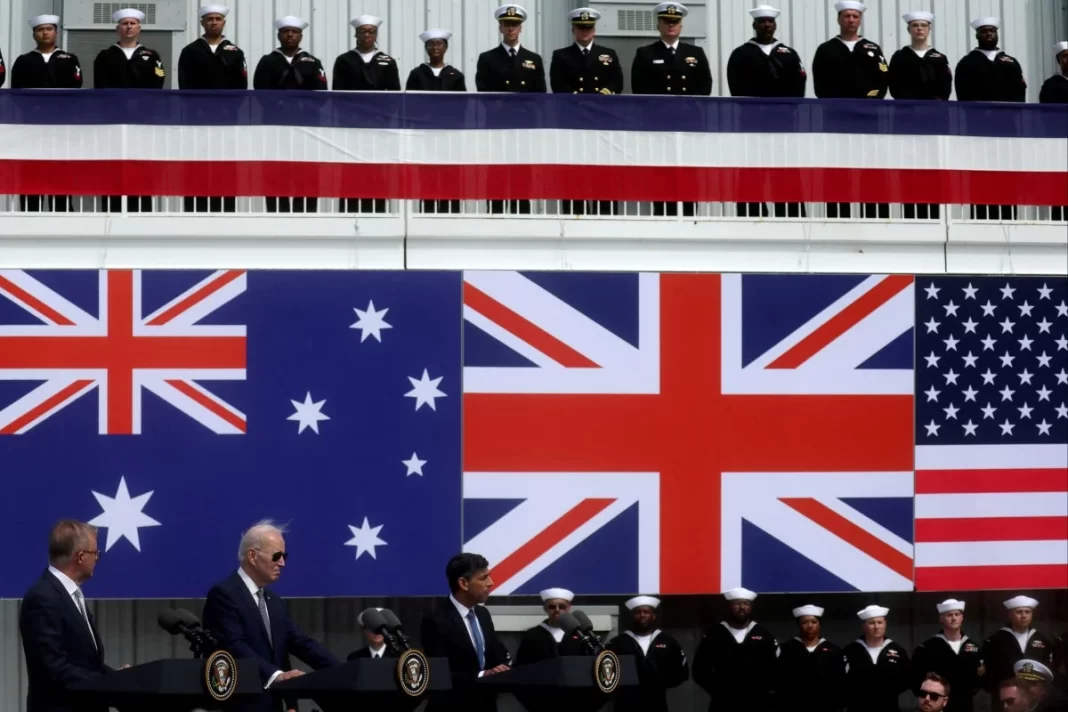If Donald Trump returns to the White House, his policies may bring uncertainty to the US-led security alliances in the Indo-Pacific region. This includes key partnerships such as AUKUS and the Quad, which have played major roles in efforts to counter China’s growing influence. Experts say Trump’s “America First” focus could lead to changes in these alliances, impacting stability in the region.
What Are AUKUS and the Quad?
The AUKUS alliance is a defense pact between the United States, the United Kingdom, and Australia, created to help Australia acquire nuclear-powered submarines and other advanced technologies. Formed under President Joe Biden’s leadership, this partnership aims to strengthen security capabilities in the region. These submarines, although conventionally armed, are vital for maintaining a strong defense presence near China.
The Quad, another important alliance, consists of the US, Japan, India, and Australia. Originally developed in response to a natural disaster, the group has since evolved into a platform for promoting a “free and open Indo-Pacific.” While its primary goals focus on security, it also promotes economic and cyber cooperation. However, some question the Quad’s effectiveness, given that its members have different levels of interest and commitment to the partnership.
Challenges with Trump’s Approach to Alliances
In Trump’s first term, his foreign policy diverged from the traditional approach of building strong alliances. He often questioned the value of multilateral agreements and preferred to focus on bilateral relationships, putting the US interests first. This made some traditional allies uneasy, as Trump sometimes threatened to reduce support if allies did not contribute more to their defense.
If Trump wins a second term, experts suggest he may continue this approach. For AUKUS and the Quad, this could mean that Trump pushes for greater financial and military commitments from allies. While the US would likely remain committed to countering China, Trump may insist that allies take on more responsibility in doing so.
How Might AUKUS Be Affected?
AUKUS plays a key role in the region’s defense strategy, particularly as it strengthens Australia’s capabilities. Trump is expected to keep supporting AUKUS, given its role in countering China’s influence. However, his approach may shift towards evaluating the direct benefits to the US. He may prioritize cost-sharing and insist that Australia and the UK contribute more financially to the agreement.
This focus could lead Trump to negotiate different terms or even adjust timelines, potentially delaying or altering AUKUS commitments. Trump’s return could also mean a more transactional relationship within AUKUS, where each partner’s contributions are closely scrutinized. However, the core goal of enhancing regional security may still remain intact, as all parties recognise the importance of balancing China’s influence.
The Quad’s Future Under Trump
The Quad alliance could face a less certain future if Trump returns to office. While Trump previously supported the Quad’s role in the Indo-Pacific, his administration may not view it as central to the US strategy. Experts believe he could reduce direct support if he sees limited benefits for the US. This could shift the Quad’s role to a more symbolic partnership, with fewer significant actions on security matters.
One of the main challenges facing the Quad is India’s close trade ties with Russia. This has created divisions within the alliance, as the US and India sometimes disagree on their approaches to China and Russia. Trump’s focus on straightforward agreements might lead him to prioritize bilateral agreements with Japan or Australia, countries that are more aligned with the US in their stance towards China.
Implications for Japan, South Korea, and Other Allies
Trump’s approach may emphasise stronger, more focused partnerships with nations that are willing to contribute more to regional security. This may lead to deeper engagement with Japan and South Korea, who play significant roles in regional stability. However, Trump may pressure these countries to increase their defense spending and take more responsibility for their own security.
For Japan and South Korea, this means they might need to invest more in their own defense capabilities, which could strengthen their roles in the region. They might also work more closely with each other and Australia to ensure stability, especially if Trump shifts his attention to other regions or scales back US involvement in multilateral partnerships.
Preparing for Potential Changes in the Region
If Trump scales back US commitments, Australia and other countries in the Indo-Pacific may need to adapt. Australia, for instance, may focus on building its own partnerships with Japan and South Korea. This shift could lead to a regional security structure that relies less on US leadership and more on cooperation among key Indo-Pacific nations.
Japan and South Korea may also look to strengthen ties within the region. They may expand their defense and economic collaborations with Southeast Asian nations like Indonesia and the Philippines. This could help create a more resilient network of regional allies that can act independently of the US if needed.
Balancing US Relations and Regional Security
For countries like Australia, balancing a strong relationship with the US while building independent regional ties will be crucial. They may need to rely less on US support and work more with other regional powers. This shift could provide a chance for the Indo-Pacific nations to create a security network that remains strong even if the US adopts a less predictable role.
While Trump’s second term may bring changes to the dynamics of these alliances, countries in the region are preparing for this potential shift. They recognise that a unified, cooperative approach will be necessary to maintain stability in the face of China’s growing influence.

